Editor’s Note: Sign up to get this weekly column as a newsletter. We’re looking back at the strongest, smartest opinion takes of the week from CNN and other outlets.
It was a “war scene,” like something “out of the movies,” US Capitol Police officer Caroline Edwards recalled when Rep. Bennie Thompson asked about “that awful day” — January 6, 2021.
“I couldn’t believe my eyes, there were officers on the ground … they were bleeding, they were throwing up … I was slipping in people’s blood. I was catching people as they fell. It was carnage, it was chaos. I can’t even describe what I saw, never in my wildest dreams did I think that as a police officer, as a law enforcement officer, I would find myself in the middle of a battle.” Edwards, describing herself as the granddaughter of a veteran wounded in the Korean War, was the concluding witness Thursday evening when the House select committee held its first public hearing.
The damage to the Capitol building has been repaired and a new administration has been sworn in, but the hearing showed that the scars of that day linger — most strongly in the doubt it raised about the survival of the peaceful transfer of power, a tradition started by President George Washington and upheld for more than two centuries. The committee’s Republican vice chair, Rep. Liz Cheney of Wyoming, put the blame squarely on former President Donald Trump.
“The attack on our Capitol was not a spontaneous riot,” Cheney said. “President Trump summoned a violent mob and directed them illegally to march on the United States Capitol. While the violence was underway, President Trump failed to take immediate action to stop the violence and instruct his supporters to leave the Capitol.”
Republican commentator Scott Jennings wrote that Cheney “delivered a compelling presentation that left little doubt about what happened that day. Cheney has become public enemy number one to Trump, and Thursday night she got her chance to swing back in prime-time television. She didn’t miss.”
Much of the video “seemed familiar,” wrote Jennings. “We did, after all, watch the storming of the Capitol unfold on live TV and have seen hours of footage since then. But it was, nonetheless, enough to make your blood boil all over again to watch rioters defile our Capitol and make America seem like a banana republic.”
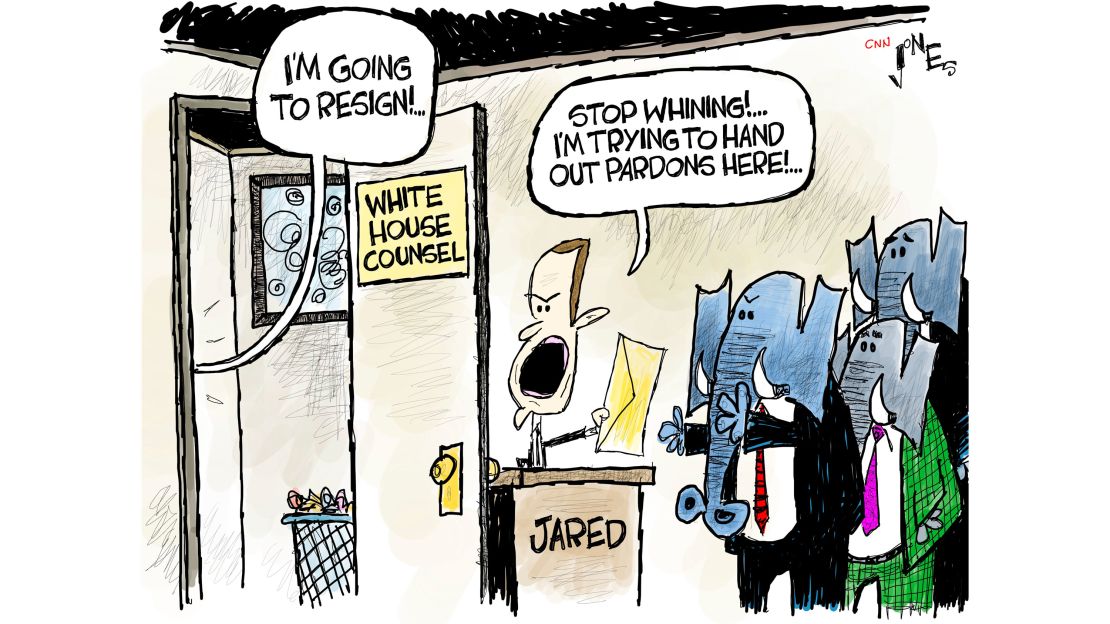
Caroline Edwards’ “firsthand account of being knocked unconscious and matter-of-factly describing the animals who did that to her as they stormed the building was a stark reminder that this riot wasn’t a bunch of confused tourists who accidentally wandered into a restricted area,” Jennings observed.
To Frida Ghitis, “It was one of the most gripping evenings of television in memory. Americans who chose to watch the first January 6 committee hearing saw the people closest to former President Donald Trump lay out in damning detail the events of that day — the violent insurrection at the US Capitol — tracing a direct line of responsibility to the former president for leading what looks very much like an attempted coup, a plot to seize power by force and deny the American people the government of their choosing.”
“It was a searing indictment, made all the more powerful because the people who provided the most damaging accusations against Trump were those closest to him, people who had vigorously defended him in the past…”
“The key point here is not just what happens to the man who, according to Committee Vice Chair Liz Cheney, ‘summoned the mob, assembled the mob, and lit the flame,’ of the attack on the Capitol.”
“What happens to Trump matters, but what matters more than anything is what happens to American democracy. That’s because the plot that produced January 6 has not ended. The big lie continues, and there is no guarantee that American democracy can survive another presidential election when one of the two parties remains beholden to a confirmed falsehood about the 2020 election.”
The events of January 6 prompted documentary filmmaker Nick Quested to fear that they were a dress rehearsal for another attack on the American constitutional order, he told CNN’s Peter Bergen.
Quested, who testified at Thursday’s hearing, told Bergen the next morning that “the Proud Boys were already marching in an easterly direction towards the western side of the Capitol” when he arrived on January 6 “and I immediately kicked into gear and started trying to cover the scene. I’m shooting a wide shot. I’m shooting long lens. I’m in the middle of the crowd with them. I’m shooting slow motion. I’m just trying to edit a sequence in my head, because I’ve done a lot of marching with these guys. They love marching up and down the Mall … And we walked around the Capitol, and still they were marching. They’re singing their songs. It felt like hooligans at a soccer match. There were bawdy jokes. There’s sort of been an evolution in the Proud Boys, and at one point, people said that they were a drinking club with a political problem. I’d say they’re a political club with a drinking problem now.”
“And it wasn’t until that crowd moved near the barrier around the Capitol that I felt the world shift. At 12:54 p.m. I feel the commotion and run over, and soon, the barriers are coming down and people are streaming forward and running towards the Capitol.” Quested shared footage of the day with the House select committee’s investigators.
For more:
Elie Honig: January 6 hearings hinge on these five things
Dean Obeidallah: GOP’s ‘counterprogramming’ aims to distract from what the January 6 hearings may reveal
Julian Zelizer: History offers a surprising warning about January 6 hearing drama
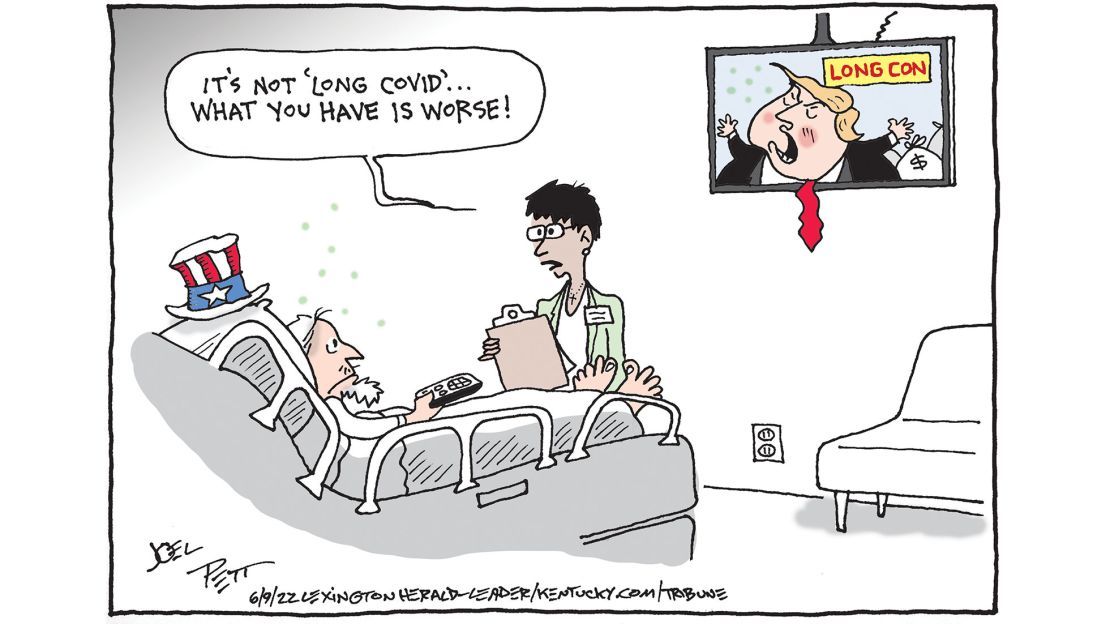
The most dangerous guns
Senators of both parties are trying to reach an agreement on measures to quell the rising number of mass shootings, but whether they can strike a deal for meaningful change is an open question. Among the issues they’re grappling with is the question of access to the most dangerous guns.
“The AR-15 has the dubious distinction of being America’s most popular semi-automatic rifle,” wrote Michael Fanone, a longtime Washington, DC, police officer who is now a CNN law enforcement analyst. “No weapon has been more in the public eye in America of late than the AR-15, in large part because of its tragic role in some of this country’s deadliest shootings.”
“I’m more familiar with the gun than most people: I own one. And one thing I know for sure is that this weapon doesn’t belong in the hands of the average civilian…”
“The bullet that comes out of the barrel of an AR-15 style semi-automatic rifle can easily penetrate the target — the intruder or whatever person…”
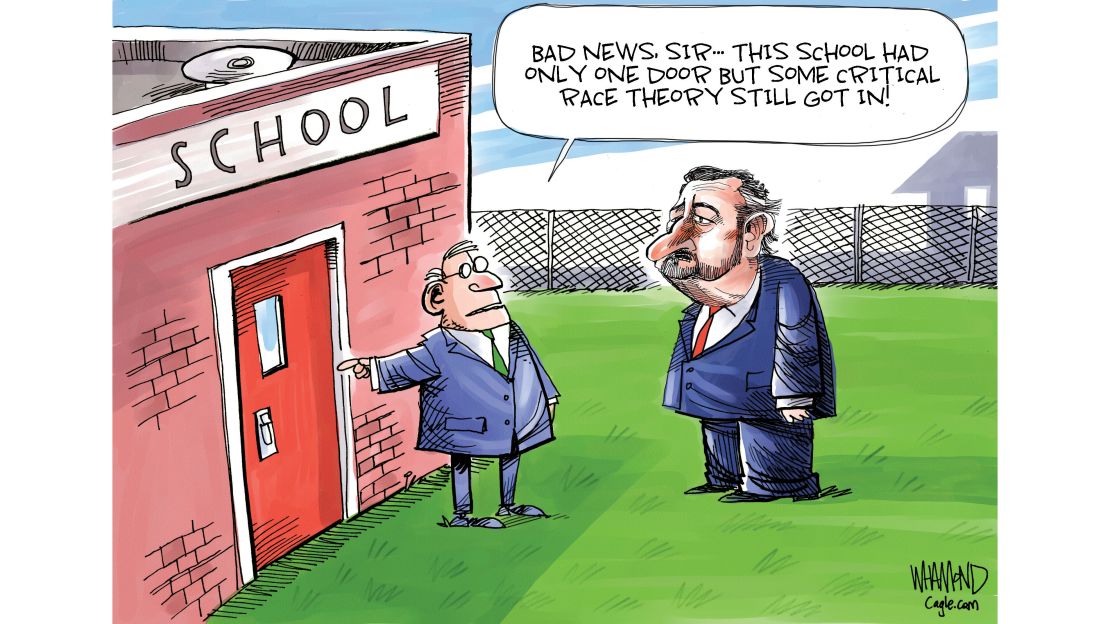
“But it also will go through the wall behind that person, and potentially through that room and into the next wall. That power and accuracy are useful for military purposes, which is obviously what they were designed for. But it’s far more power than should ever be in the hands of the average civilian.”
Assault-style rifles can inflict much greater damage on the human body than handguns, wrote Dr. Sanjay Gupta in CNN’s Health section. “The bullet doesn’t simply travel through the body, it creates a big cavity inside it.”
With “a semi-automatic weapon, the weapon can be fired repeatedly, without manually reloading, simply by pulling the trigger,” Gupta noted. “In Uvalde, hundreds of rounds were fired into classrooms in the first four minutes, according to Texas Department of Public Safety Director Steven McCraw.”
For more:
Matthew Gordon: Retired Marine’s gun control video goes viral. Hear his solution on gun violence
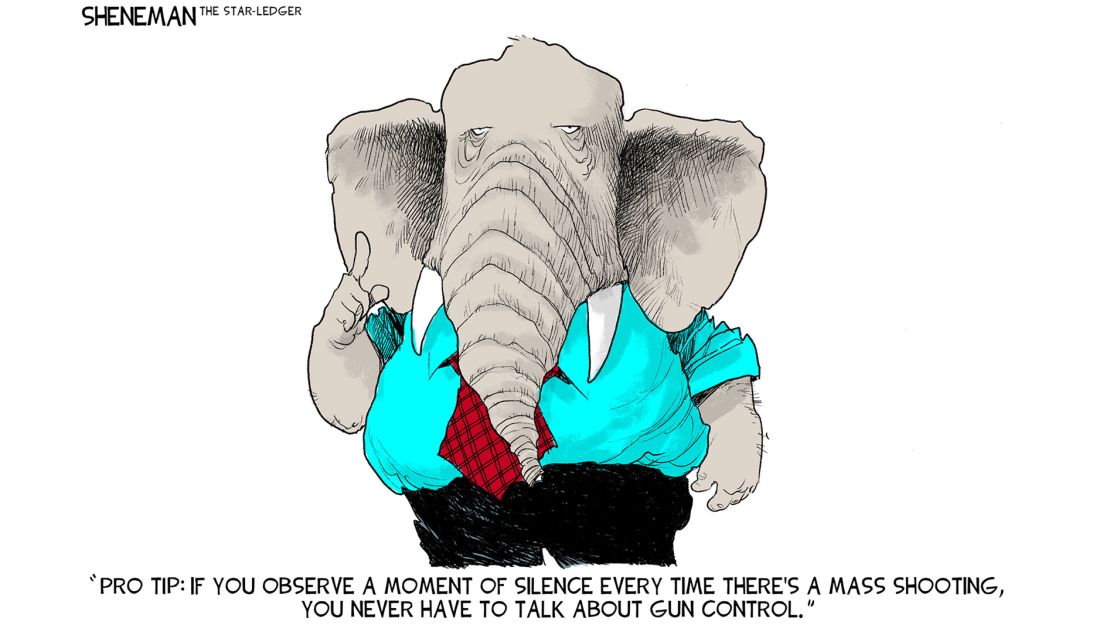
Crime in the streets
A shooting on Philadelphia’s South Street, in which three people were killed and 11 were injured, grabbed headlines earlier this month, but the daily drumbeat of death on the streets is too often ignored, wrote Pastor Carl Day and CNN Political Contributor Van Jones. “Too many parts of Philadelphia and other cities feel like war zones,” they wrote. “No place seems safe. People are being murdered in social spaces. People are getting shot near college campuses. Fathers, mothers, sons and daughters are being killed.”
“When it comes to gun violence in urban areas, the Black community too often feels abandoned and ignored … We implore everyone to understand where Black Americans are and what we’ve been through. These issues have existed for decades in our communities. When people shout about making America great again, we beg them to understand that Black communities have been suffering and overlooked in the midst of carnage for centuries — both imposed and self-inflicted.”
For more:
SE Cupp: Wokeism defeated? Not so fast
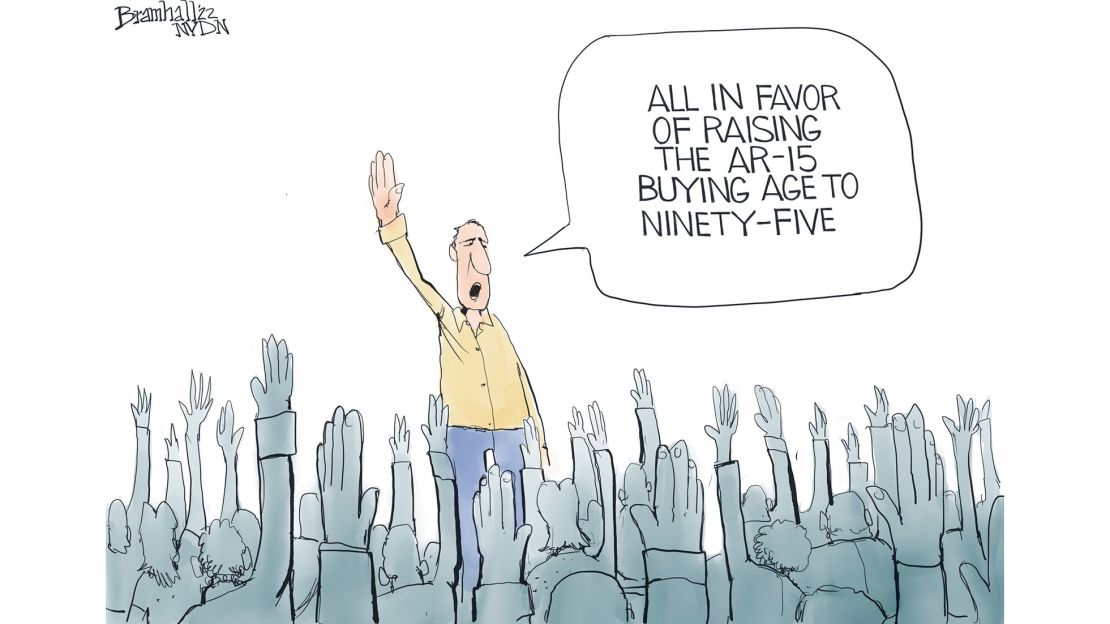
Vaccines for the youngest
On Wednesday, a US Food and Drug Administration advisory committee is due to take up drug company applications for emergency authorization for Covid vaccines for children as young as six months.
Dr. Julie Morita, a pediatrician and executive vice president of the Robert Wood Johnson Foundation, observed, “Doctors, pediatricians and local health departments are among the most trusted sources for accurate vaccine information.”
“They should address questions and concerns with empathy and thoughtfulness. And, if parents ultimately decide to vaccinate their children, the steps necessary to maintain a sustained and equitable rollout — such as bringing vaccines directly to underserved schools and communities, ensuring appointments after hours and on weekends, and permitting walk-in visits for those who cannot make appointments — should continue to be prioritized.”
Is inflation peaking?
Average gas prices nationwide have hit $5 a gallon. Friday’s Consumer Price Index showed an 8.6% jump in the 12 months ending in May. But economist Mark Zandi thinks we may have seen the worst of the inflation spike sparked by Covid-19.
“The pandemic appears to be winding down,” he wrote for CNN Business Perspectives. “Further, the worst of the economic fallout from Russia’s aggression also appears at hand. Oil prices have pushed higher again, this time on the European Union’s decision to partially ban Russian oil. However, any country that is going to sanction Russian oil has likely now done so, and other global oil producers have strong economic incentives to produce more, which they have announced they’d do. Oil prices, and thus gasoline prices, should decline later this year…now all we need is a bit of good fortune and for the pandemic and Russia’s invasion of Ukraine to take a turn for the better.”
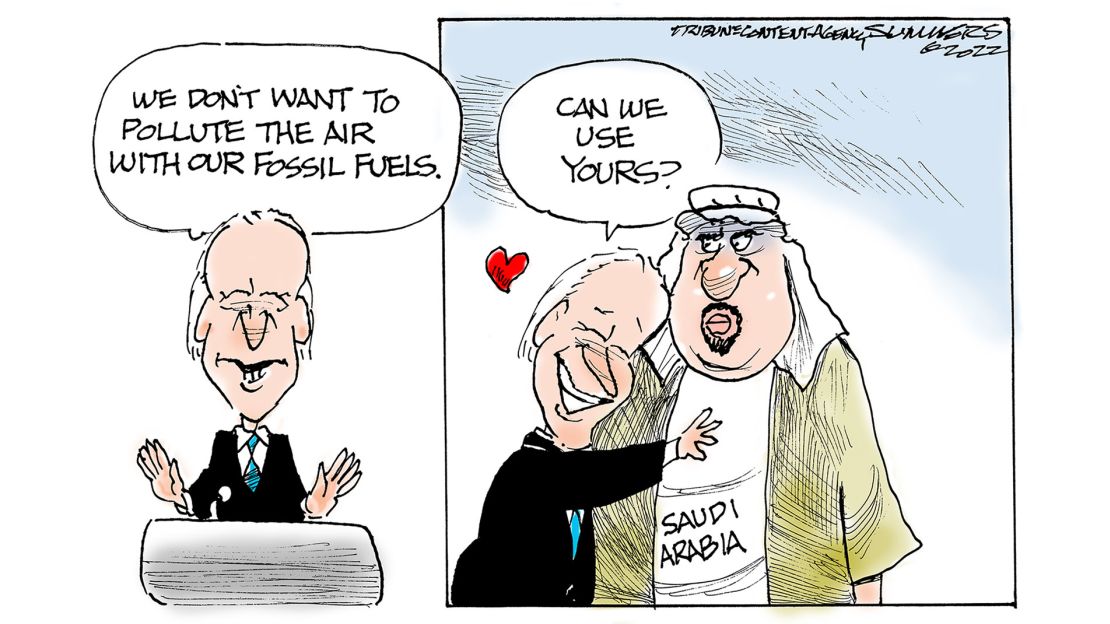
Ukraine family ties
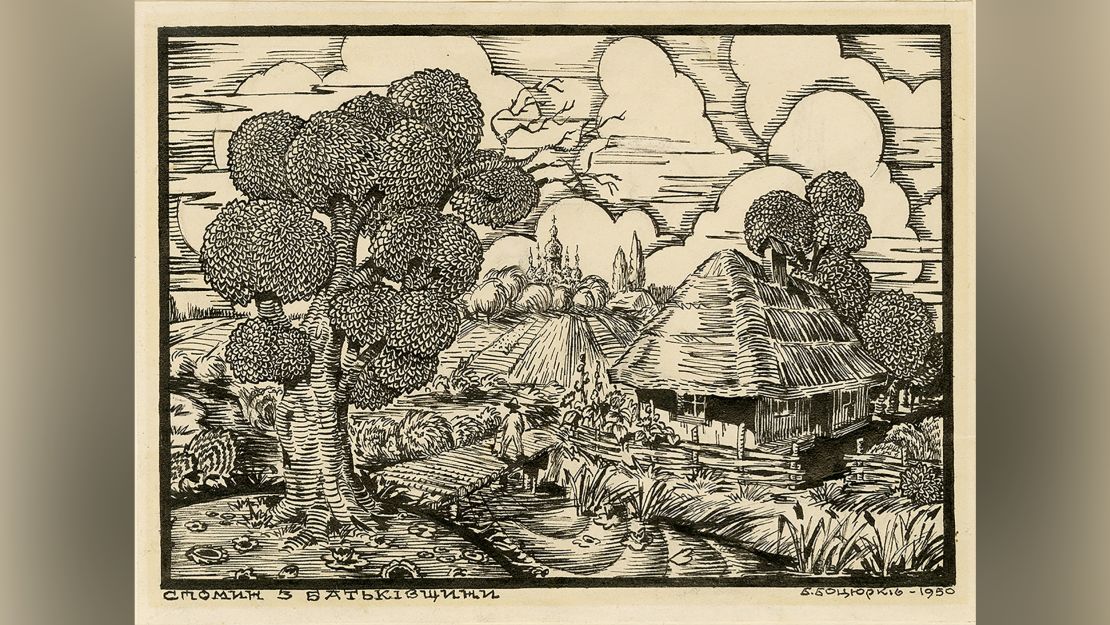
When Michael Bociurkiw travels to Ukraine, he makes sure to take along a picture his ‘tato’ (father) “sketched in 1950 that he called ‘memories of Batkivshchyna’ or ‘homeland.’
“The picture of a quaint village was based on Bohdan Bociurkiw’s memories of living in western Ukraine as a student and scholar, shortly after he left a refugee camp in Europe and migrated to Canada in 1947. Bucolic, peaceful and rustic, the scene always had pride of place on the walls of our various homes in Canada and around the world. For many years, it was how us kids fantasized about the land of our ancestors.”
The Ukraine war has brought Bociurkiw, a global affairs analyst, much closer to the village of his ancestors — so close, in fact, that he’s moving from the idyllic countryside of western Canada to Lviv, the western Ukrainian city that has been the target of some Russia missiles.
“In many parts of Ukraine, after more than 100 days of war, it’s as bad as it gets,” Bociurkiw observed. “The Russian military has committed unspeakable potential war crimes reminiscent of the horrors seen in Chechnya — including reports of mass rape (including of young children and elderly grandmothers), shooting of civilians, cleansing of dissidents, summary executions, filtration camps and the forcible deportation of hundreds of thousands of Ukrainians to Russia.
“Many of my relatives were forcibly deported to the Soviet gulag, never to return. Who could have imagined that decades later Ukrainians are once again facing mass deportations in 2022.”
Last week marked 75 years since US Secretary of State George Marshall unveiled to Harvard University graduates the outline of his plan for a massive aid program to rebuild war-torn Europe. The Marshall Plan, John Avlon noted, is worth remembering as the west contemplates how to support Ukraine in its resistance to Russia’s invasion.
“In recent years, we’ve learned the dangers of taking our democracy for granted — and in recent months we’ve learned the wisdom of those organizations established by America and its allies to win the peace after World War II,” wrote Avlon.
“Vladimir Putin’s invasion of Ukraine should have shattered any fashionable illusions about isolationism or the end of history. It should also remind us that geopolitical bullies only respect strength. That’s why collective security agreements work. Just ask traditionally neutral nations like Finland and Sweden why they want to join NATO now.”
Don’t miss
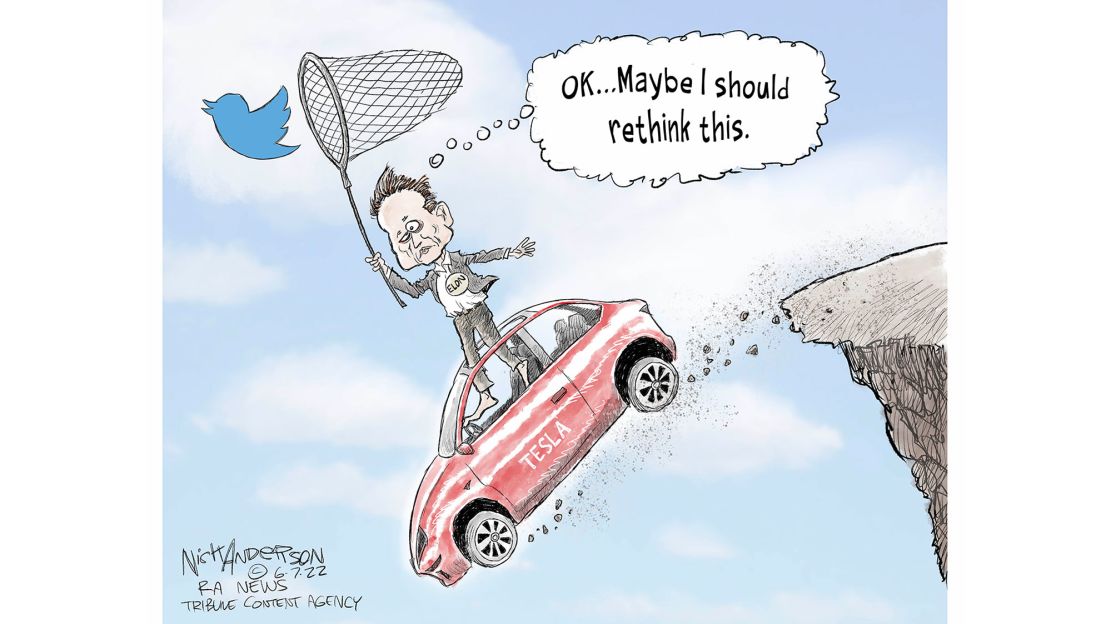
Jill Filipovic: It’s time for Sen. Dianne Feinstein to go
Elliot Williams: Getting to the ‘meat’ of a weird rule in Congress
Bill Press: There’s no way to fix the Second Amendment. Let’s just get rid of it
David Masciotra: The surprising reason for Joe Biden’s low approval rating
AND…
Cheers and boos
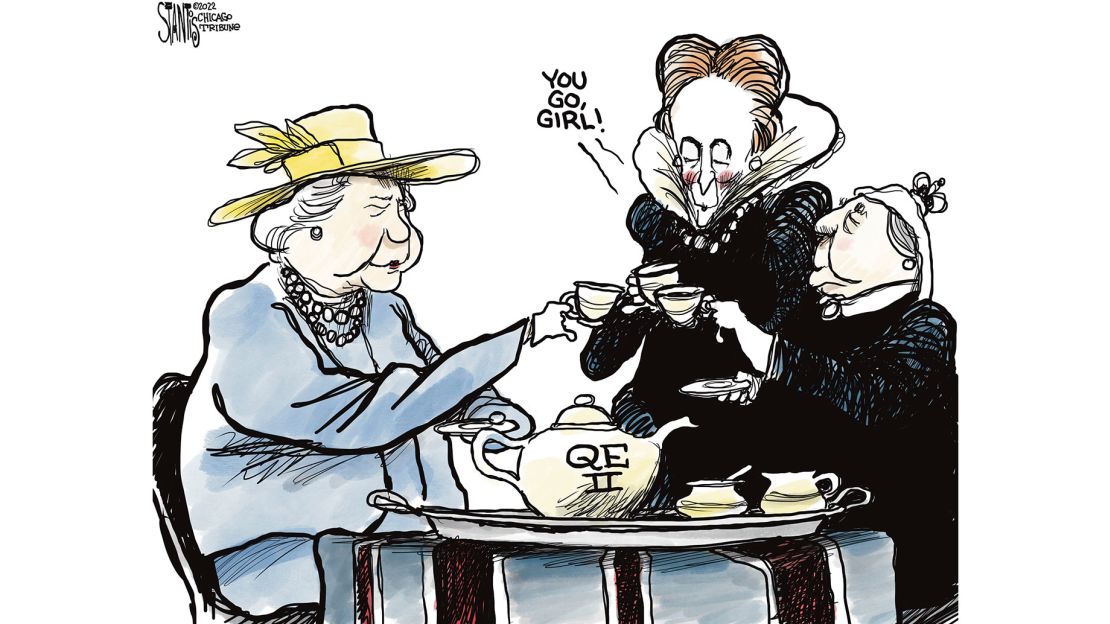
The culmination of the UK’s four-day weekend celebrating Queen Elizabeth II’s 70 years on the throne came Sunday when the 96-year-old monarch made an unexpected appearance on the balcony of Buckingham Palace as people sang, “God Save the Queen.”
The previous Friday, the UK’s prime minister had received a different kind of greeting, Rosa Prince noted. When Boris Johnson “clambered out of his chauffeur-driven car, wife Carrie at his side, to attend a service of thanksgiving” for the Queen’s long reign, “a murmur rose from the waiting crowd, a low grumble that rapidly coalesced into distinct boos.”
“In the past,” Prince noted, “his gleeful insouciance and glorious erudition had earned him something like a political hall pass, permission to shrug off a myriad of transgressions, both personal and political, any one of which would likely have torpedoed less blessed politicians.
“But with that genteel heckling at St. Paul’s Cathedral, something became apparent to him and everyone who heard it: This was the moment it was clear the British public had finally fallen out of love with their Prime Minister.”
Johnson narrowly survived a no-confidence vote among his fellow Conservative MPs Monday. “What policies should he change? What adjustments could he make?”
“None. Because when the problem is not your ideas but your character, and it is a character the public no longer trusts, then there’s nothing you can do,” Prince observed.
“Johnson has survived the vote — for now. But the message from the crowds outside St. Paul’s has come through loud and clear — the party is over, and they’re ready to move on.”

